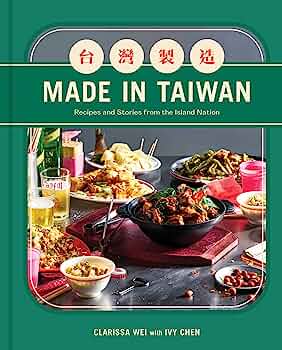The politics of soy sauce: A cookbook from Taiwan
Made in Taiwan: Recipes and Stories from the Island Nation is a political declaration that for this writer, at least, it is a nation

It is a reminder of how political food can be that Clarissa Wei’s new cookbook Made in Taiwan makes a bold statement simply by highlighting the unique taste of the island’s soy sauce and its black vinegar. The soy sauce, she says, has both Chinese and Japanese influences and the black vinegar is more like Worcestershire sauce than the equivalent Chinese condiment.
What does that mean in the context of Chinese attempts to convince Taiwan and the world that the island is no more than an appendage of the mainland, an “inalienable” part of Chinese territory?
It’s pungent stuff, something that Ms Wei is deeply conscious of. Formerly an aspiring political journalist, she found politics “too heavy and dark” and became more focussed on writing about food instead.
First, there was East Asian cuisine in America, then Chinese food in China and finally, Taiwanese food as China’s crackdown on democracy protests in Hong Kong intensified in 2020.
She told Eater that she pitched a Taiwanese cookbook to American publishers because “I realized how quickly a place’s sense of identity erodes overnight, especially under the shadow of an authoritarian government. I really wanted to preserve the stories of Taiwan through the lens of food, and I felt really frustrated that Taiwanese food is always lumped into the broad umbrella of Chinese food.”
So the cookbook was born, its title making clear the premise. Made in Taiwan: Recipes and Stories from the Island Nation is a clear statement, a political declaration, establishing that for this writer at least, Tawian is a nation, in culinary, cultural and political terms.

